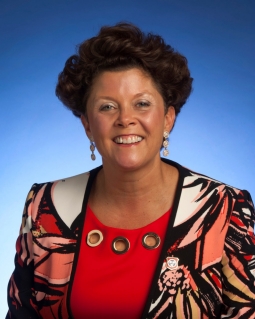Mental Health Awareness Month
Op-Ed by Commissioner Marie Williams
When the calendar turns to May, we think of strawberry season, the end of another school year, and an early arrival to summer, but how many of us think about our mental health? May marks Mental Health Awareness Month in Tennessee. One in five Tennessee adults experiences a mental illness in a given year. The impact of these mental, behavioral, or emotional disorders can range from no impairment to severe impairment. The prevalence is higher among adults age 18 to 49 and among women, but women are far more likely to receive treatment than men.
Half of all lifetime cases of mental illness begin by age 14, and 75 percent surface by age 24. Here’s the critical thing about our youth: national averages indicate that it takes eight to ten years from the onset of symptoms until intervention. That can lead to problems at home, problems at school, interaction with the juvenile justice system, and even thoughts of suicide. More than 90 percent of children who die by suicide have a mental health condition.
As a community, what can we do better to make sure all Tennesseans get the help they need? The National Council for Behavioral Health has a great resource entitled “7 Super Skills to Help a Friend in Need.” They list calmness, honesty, a non-judgmental attitude, empathy, resourcefulness, reassurance, and encouragement as the seven tools needed for helping someone experiencing difficulty. In addition, if you or someone you love is struggling, I encourage you to visit our website (tn.gov/behavioral-health) and learn more about the resources that are available.
Access to treatment resources comes in a number of different ways including private insurance and TennCare. Services through the Department of Mental Health and Substance Abuse Services are directed to individuals who are uninsured or lack the means to pay. Compared to our peer states, Tennessee is uniquely positioned to make sure that people who need treatment but have little to no means to pay can still get services through our Behavioral Health Safety Net (BHSN). Thanks to support from Governor Haslam and the General Assembly, about 30,000 Tennesseans access services through the BHSN each year.
Connection to the safety net and other recovery services most often happens through one of Tennessee’s community mental health centers. Dedicated and knowledgeable professionals at these centers across the state help people living with mental illness attain their goals. Using evidence-based interventions, it is possible for people to achieve recovery, build resilience, and gain the independence they desire. In addition, Tennessee has an impressive network of peer supports provided by people with lived experience of mental illness. These Certified Peer Recovery Specialists use their experiences and share their knowledge to lift up others in recovery. I also encourage you to speak with your primary care physician or child’s pediatrician. They are on the front lines of mental health and connecting people to treatment resources.
At a time in our nation when we’re having essential conversations about mental health, my wish is for us all to know that treatment is effective and recovery is possible. By doing so, we ensure that all Tennesseans have the same opportunities to live, learn, work, and play in this great state we call home.